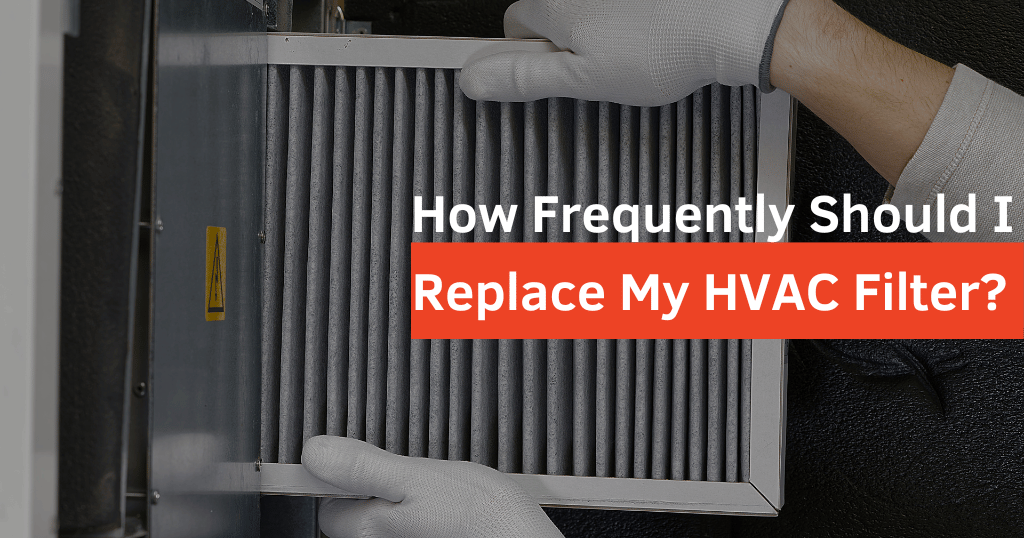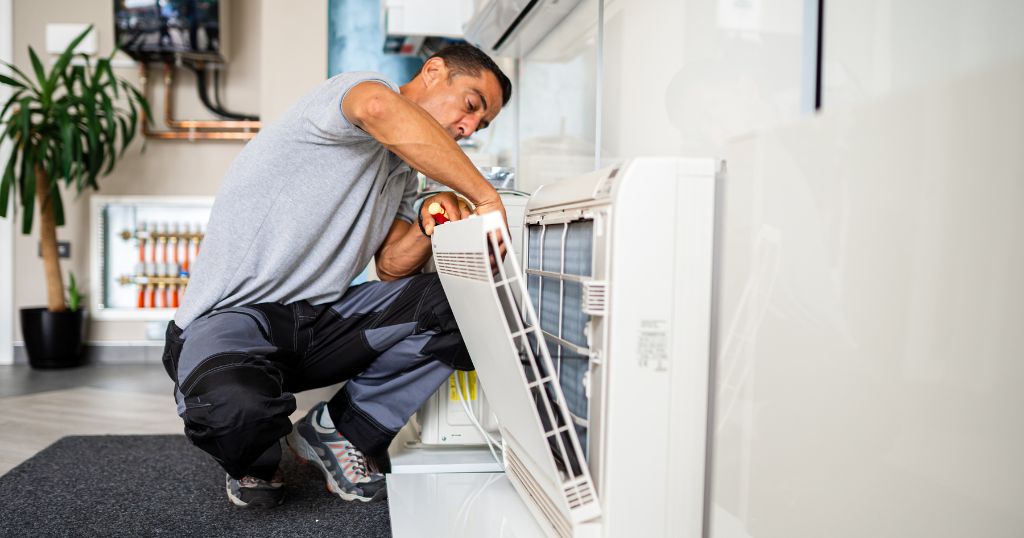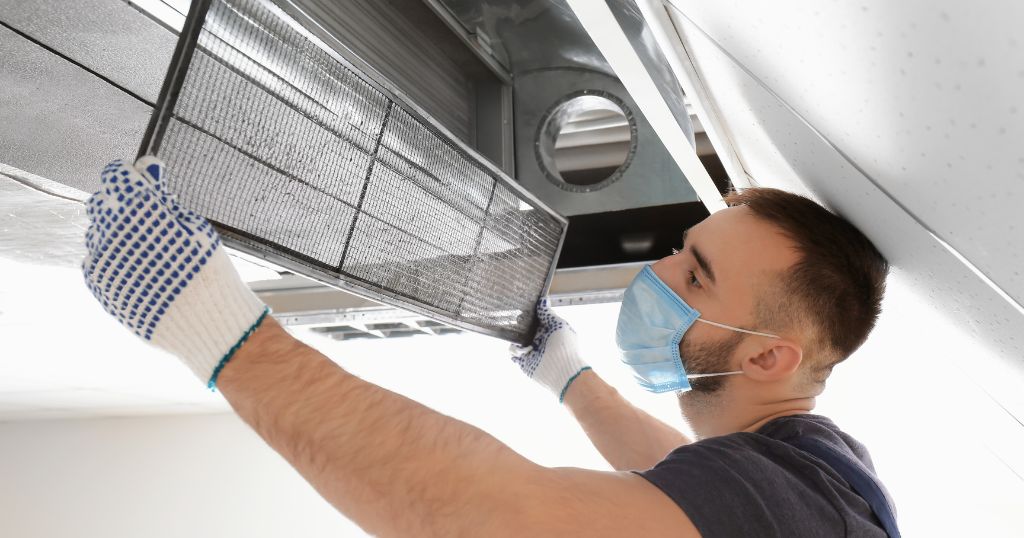All filters are made in the USA – Order Today

Remember when you changed the air filters of your HVAC last time? If you don’t, it must have been a long time, and it’s time to do it. It also indicates that you are not changing the air filters of your HVAC at the appropriate time. Did you know that not changing the air filters at the right time might lead to poor air quality and fire hazards?
If you are unaware of the frequency of changing the air filters of your HVAC system, nothing is worth worrying about, as we are here to help. The frequency of air filter replacement of your HVAC system depends on a variety of factors, including the size of your home, the number of people residing, and whether you have pets and kids.
Let’s take a deep dive into this exclusive blog to determine how often you should change the air filters of your HVAC system and many more crucial details.
You might be wondering how important an air filter replacement could be. After all, it’s just a small component in your big HVAC system. But without this small component, your big HVAC system is just like a chef without a strainer. It works very hard. However, lets all the unwanted contaminants circulate freely in the air.
Much like a strainer keeps the pasta water clear, an air filter keeps your indoor air clean, ensuring you live a healthy and happy life. But do you know what happens if you don’t change your air filter at the right time? Here’s what your negligence and procrastination can do:
You might not want to risk the lives of your loved ones or damage your HVAC system. So, the question arises how often should you get your HVAC filter changed? Many factors influence filter replacement frequency, and we will talk about it in the following section of this blog.

The filter replacement frequency is influenced by a variety of factors, including filter type, system usage, environmental conditions, HVAC system efficiency, and more. Here are the key factors that play a vital role in filter replacement frequency at which you should replace your filters.
The frequency at which you should change your HVAC filter will depend on how much you use your HVAC system. If your HVAC system is in operation constantly, you need to get your air filters changed more frequently. However, those who use their system less due to any reason can change their filter less frequently. In order to establish an optimal filter replacement schedule, it is essential to assess and understand your HVAC system’s usage patterns.
How many people live in your house will also affect the frequency of HVAC filter changes. When you have more people living in your home, there is more activity around your home. All of this generates more dust, pet hair, and other tiny particles. Your HVAC filter has to work harder to provide you with fresh and clean air. So, if you are living alone, you don’t have to change your HVAC filter frequently. However, those living with pets and kids should get their filters replaced frequently to ensure everyone breathes in healthy air.
The type of filter your HVAC system uses will affect the frequency of your filter change. There are many types of filters used in HVAC systems, including fiberglass, pleated, HEPA, etc. Each of these filters has a different working efficiency and replacement rate. For instance, HEPA filters can capture tinier particles and are ideal for people with allergies. These filters are expensive and can be changed less frequently. However, Fiberglass filters are cheaper and don’t capture many tiny particles. Thus, you should get them changed more frequently.
Environmental conditions also play a vital role in affecting the frequency of HVAC filter replacement. If you live in an area where there’s a lot of construction, you will need to change the HVAC filter more frequently. On the other hand, if you live in a calm neighborhood with less airborne activity, you will be required to change your HVAC filter less frequently. So, understanding the environmental conditions is your key to establishing the right filter replacement frequency.

From the above information, you might be able to determine the right frequency of HVAC filter replacement. To know if it’s the right time to change your filter or if it can survive the next few weeks, you must know the signs that indicate that your HVAC system needs filter replacement. Here are the signs it’s time to get your air filter changed:
When the air filter of your HVAC system is clogged, you won’t be able to achieve your desired temperature. A clogged air filter restricts the airflow, and the required amount of air doesn’t enter your indoors, and you have to suffer in a house that’s not cozy or doesn’t have a temperature according to your requirements. If your system can’t provide you with enough heat and doesn’t meet your temperature requirements, check your filter; it must be clogged, and replace it.
Did you get an energy bill more than expected? Is the bill amount much more than your previous ones? Your HVAC filter might be the culprit, and you should get it changed with no delay. Over time, dust and other contaminants accumulate on your air filters, clogging them and making your HVAC system work harder, increasing energy consumption and leading to increased energy bills.
Everyone loves to breathe in pure and refreshing air. But when the air filters of your HVAC are clogged, it only gives you stale air, filled with contaminants, causing a lot of respiratory issues. If you think that the air quality of your indoors has dropped recently, you should get your HVAC filters changed immediately.
When the air filters of your HVAC system get clogged, it forces your system to work harder, causing overheating. If you’ve noticed that your system is running hotter than usual, you might need to check its air filters. A clogged air filter is an obstacle in the airflow, and removing these hurdles will let your HVAC system run more efficiently.
Your HVAC system generally hums while it works hard to provide you with clean air, free from contaminants and other impurities. If your HVAC system starts making unusual sounds, the clogged air filter could be a culprit in this case. When your system starts making unusual sounds when in operation, you should check its air filters and get them changed if required.
The maintenance of your HVAC system is essential to ensure it runs efficiently. Here are some of the general guidelines that will help you establish a reliable routine:
Though changing the HVAC filter is very easy, if it’s your first time swapping the filters, it could be daunting for you. Here is how to replace the air filters of your HVAC system easily:
Regular maintenance of your HVAC system is essential to ensure it works efficiently around the year. One of the most important tasks related to the maintenance of your HVAC system is replacing the air filters to ensure your HVAC system keeps circulating clean air in your indoors. You can change the air filters of your HVAC system every 90 days to ensure maximum efficiency of your system and keep breathing in fresh air.
To learn more about the right air filter replacement frequency, read your HVAC system’s user manual. It also contains information on the maximum MERV filter rating that you can use. Those who have misplaced the user manual or cannot find it can consult a professional. If you are ready to change your HVAC system’s filters, visit Custom Filters Direct for high-quality and affordable filters.
To choose the right HVAC filter, you have to consider a variety of factors, including the filter type, MERV rating, and compatibility. Each type of filter has its pros and cons, so make sure you weigh before you buy. Also, check whether your HVAC system is compatible with the air filter you are installing. Otherwise, you might damage your HVAC system, and their repairs are very costly.
The frequency of HVAC filter replacement depends on various factors like filter type, environmental conditions, and system usage. However, the rule of thumb is to get your air filters changed every 90 days. You can refer to your system’s user manual for more details regarding how often you should change your HVAC filter.
To determine if your HVAC system requires replacement, watch for signs like reduced airflow, increased energy bills, or visible dirt on the air filter. If you feel your home is not as comfortable as it used to be, the air filter of your HVAC system might need replacement. Also, if your system starts making unusual sounds, the culprit could be the air filter, so get it changed immediately.
By changing your HVAC filter regularly, you can ensure your system doesn’t have to work harder and more energy to keep your indoors filled with clean air. A clogged air filter restricts the airflow, forcing your HVAC system to work harder to maintain the desired temperature. So, make sure you replace the air filters of your HVAC system at the right time.
Have any questions? We’re here and ready to help!
© 2022 Custom Filters Direct. All rights reserved.